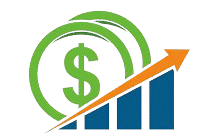Best Mortgage Options for First-Time Homebuyers Now
Table of Contents
Stepping into homeownership for the first time is both exciting and nerve-wracking. Between saving for a down payment, understanding credit scores, and navigating endless paperwork, the mortgage process can feel like learning a new language. But here’s the good news: finding the best mortgage options doesn’t have to be complicated when you know what’s available and how to match your financial situation with the right loan program. get more info about How to Save $10,000 in One Year;
Whether you’re a young professional ready to stop renting, a growing family seeking more space, or a veteran looking to use your benefits, there’s a mortgage solution designed with your needs in mind. Let’s break down everything you need to know about securing affordable financing and making your homeownership dreams a reality.
Understanding Your Mortgage Options as a First-Time Buyer

The mortgage landscape offers several pathways to homeownership, each with unique advantages depending on your financial profile, employment situation, and long-term goals. Knowing which loan type aligns with your circumstances can save you thousands of dollars and eliminate unnecessary stress.
FHA Loans: The Popular Choice for Limited Down Payments
Federal Housing Administration (FHA) loans have become synonymous with first-time homebuying, and for good reason. These government-backed mortgages are specifically designed to help people with modest savings and credit histories enter the housing market.
Key Benefits:
- Down payments as low as 3.5% for borrowers with credit scores of 580 or higher
- More flexible credit requirements compared to conventional loans
- Debt-to-income ratios up to 50% may be acceptable in some cases
- Gift funds from family members can be used for down payment and closing costs
Important Considerations:
- Mortgage insurance premiums (MIP) are required for the life of the loan if you put down less than 10%
- Property must meet FHA appraisal standards
- Loan limits vary by county and may restrict options in high-cost areas
FHA loans represent one of the best mortgage USA options for buyers who haven’t accumulated substantial savings but have steady income and decent credit. The trade-off for easier qualification is ongoing mortgage insurance costs, which should factor into your monthly budget calculations.
Conventional Loans: Flexibility for Stronger Financial Profiles
Conventional mortgages aren’t backed by the government, but they offer tremendous flexibility and can be the most cost-effective option for borrowers with good credit and stable finances.
Advantages Include:
- Down payments starting at 3% for qualified first-time buyers
- No upfront mortgage insurance premium
- Private mortgage insurance (PMI) can be removed once you reach 20% equity
- Higher loan limits than FHA in most markets
- Variety of term options (15-year, 20-year, 30-year)
Who Should Consider Conventional Loans:
- Buyers with credit scores above 620 (preferably 680+)
- Those who can afford slightly larger down payments
- Borrowers seeking to minimize long-term costs
- Anyone purchasing a higher-priced property
When comparing mortgage lenders 2025, you’ll find that conventional loans often come with competitive interest rates for well-qualified borrowers. The ability to eventually eliminate PMI makes these loans particularly attractive if you anticipate income growth or plan to make extra principal payments.
Specialized Programs for Eligible Buyers

VA Loans: Exceptional Benefits for Military Members
Veterans, active-duty service members, and eligible spouses have access to one of the most advantageous mortgage programs available. VA loans, guaranteed by the Department of Veterans Affairs, offer unparalleled terms.
Outstanding Features:
- Zero down payment requirement
- No private mortgage insurance
- Competitive interest rates
- Lenient credit requirements
- Limited closing costs with caps on what lenders can charge
- Assumable mortgages (buyers can take over your loan terms)
Eligibility Requirements:
- Sufficient service time or veteran status
- Certificate of Eligibility (COE) from the VA
- Meeting lender credit and income standards
- Property must be your primary residence
The VA loan stands out as arguably the best mortgage option for those who qualify. The combination of no down payment and no PMI can translate to tens of thousands in savings over the loan’s lifetime. These home loan tips specifically benefit military families: always compare multiple VA-approved lenders, as interest rates and service quality vary significantly.
USDA Loans: Rural and Suburban Homeownership Support
The United States Department of Agriculture offers 100% financing for eligible buyers purchasing in qualifying rural and suburban areas. Don’t let the “rural” designation fool you—many suburban communities near major cities fall within USDA boundaries.
Program Highlights:
- No down payment required
- Below-market interest rates
- Low mortgage insurance costs compared to FHA
- Flexible credit guidelines
Qualifying Criteria:
- Property must be in a USDA-eligible area
- Household income cannot exceed 115% of area median income
- Must be used for primary residence
- Basic credit requirements apply
USDA loans expand homeownership opportunities for middle-income families in smaller communities and suburban areas. Check the USDA property eligibility map online—you might be surprised to find your desired neighborhood qualifies.
Navigating Interest Rates and Credit Requirements

Understanding how lenders evaluate your application helps you position yourself as an attractive borrower and secure better terms on your mortgage.
Credit Score Sweet Spots
Your credit score significantly impacts both loan approval and interest rates:
- 740+: Qualifies for the best interest rates across all loan types
- 680-739: Good rates on conventional loans, excellent FHA terms
- 620-679: May need FHA or specialized programs for best approval odds
- 580-619: FHA loans remain accessible; conventional options limited
- Below 580: Difficult but not impossible; requires 10% down for FHA
Actionable Credit Improvement Strategies:
- Pay all bills on time for at least 12 months before applying
- Reduce credit card balances below 30% of limits
- Avoid opening new credit accounts during the mortgage process
- Dispute any errors on your credit reports
- Become an authorized user on a family member’s established card
Interest Rate Considerations for 2025
Interest rates fluctuate based on economic conditions, Federal Reserve policy, and individual borrower qualifications. While you can’t control market rates, you can optimize your personal rate through:
- Shopping multiple lenders: Comparing at least three to five mortgage lenders 2025 ensures competitive pricing
- Improving your credit score: Each 20-point increase can lower your rate
- Choosing appropriate loan terms: Shorter terms typically offer lower rates
- Making larger down payments: More equity means less lender risk
- Buying discount points: Paying upfront to reduce your interest rate
Current market conditions make timing important. Working with a knowledgeable loan officer who monitors rate trends can help you lock in favorable terms when opportunities arise.
First-Time Homebuyer Assistance Programs

Beyond choosing the right loan type, numerous assistance programs provide additional support for first-time buyers.
Down Payment Assistance (DPA)
Many states, counties, and cities offer down payment assistance through:
- Grants: Free money that doesn’t require repayment
- Second mortgages: Low or no-interest loans repaid alongside your primary mortgage
- Deferred payment loans: Repaid only when you sell or refinance
- Forgivable loans: Debt forgiven after living in the home for a specified period
Research programs in your specific area, as eligibility and benefits vary widely. Your lender or a local housing counseling agency can provide information about available assistance.
Homebuyer Education Courses
HUD-approved homebuyer education courses provide valuable knowledge about:
- The mortgage process and terminology
- Budgeting and credit management
- Home maintenance responsibilities
- Predatory lending warning signs
Many assistance programs require course completion, and some lenders offer interest rate discounts for graduates. These classes represent invaluable home loan tips that prepare you for successful homeownership.
State and Local First-Time Buyer Programs
State housing finance agencies often provide:
- Below-market interest rates
- Reduced mortgage insurance costs
- Down payment and closing cost assistance
- Tax credits (Mortgage Credit Certificates)
Check your state’s housing finance agency website for current programs and eligibility requirements.
Practical Steps to Secure Your Best Mortgage
1. Start with Financial Preparation
Before contacting lenders, strengthen your financial foundation:
- Save for down payment and closing costs (typically 2-5% of purchase price)
- Build an emergency fund covering 3-6 months of expenses
- Reduce debt-to-income ratio below 43%
- Avoid major purchases or credit changes
- Gather financial documentation (pay stubs, tax returns, bank statements)
2. Get Pre-Approved, Not Just Pre-Qualified
Pre-approval demonstrates serious buyer status and provides:
- Clear budget parameters for house hunting
- Stronger negotiating position with sellers
- Faster closing timeline
- Early identification of any credit or documentation issues
Pre-qualification is merely an estimate; pre-approval involves actual underwriting review of your finances.
3. Compare Multiple Lenders Strategically
When evaluating mortgage lenders 2025, examine:
- Interest rates and annual percentage rates (APR)
- Closing costs and lender fees
- Loan program availability
- Customer service and responsiveness
- Online tools and technology
- Reviews and reputation
Submit multiple applications within a short window (14-45 days) to minimize credit score impact—credit bureaus treat these as a single inquiry when rate shopping.
4. Understand All Costs Beyond the Mortgage Payment
Successful homeownership requires budgeting for:
- Property taxes
- Homeowners insurance
- HOA fees (if applicable)
- Maintenance and repairs (typically 1-2% of home value annually)
- Utilities
- Potential PMI or mortgage insurance
Many first-time buyers focus exclusively on mortgage payments while underestimating these additional expenses.
Common Mistakes to Avoid
Learning from others’ missteps helps you navigate the mortgage process smoothly:
Changing Jobs During the Process: Lenders verify employment right before closing. Job changes can derail approvals, even late in the process.
Making Large Purchases: Financing cars, furniture, or appliances increases debt-to-income ratio and may disqualify you.
Draining Savings Completely: Keep reserves beyond down payment and closing costs. Lenders want to see financial cushion, and you’ll need funds for moving and immediate home expenses.
Skipping Professional Inspections: Home inspections protect you from expensive surprises and provide negotiating leverage.
Accepting the First Offer: The best mortgage options come from thorough comparison shopping, not accepting the first terms presented.
Making Your Homeownership Dream Reality
Choosing among the best mortgage USA programs ultimately depends on your unique circumstances, financial profile, and long-term goals. FHA loans work brilliantly for buyers with limited savings, conventional loans reward strong credit profiles with lower long-term costs, VA loans provide unmatched benefits for military members, and USDA loans serve eligible rural and suburban buyers exceptionally well.
The key to success lies in thorough research, honest financial assessment, and patient preparation. Take advantage of first-time buyer programs, improve your credit profile, save diligently, and compare multiple lenders before committing to specific terms.
Homeownership represents more than just a financial transaction—it’s stability, pride, and building equity for your future. With the right mortgage strategy and these home loan tips, you’re well-equipped to confidently navigate the journey from renter to homeowner.
Start by determining which loan program best fits your situation, then connect with experienced mortgage lenders 2025 who can guide you through the application process. Your first home awaits, and understanding your financing options is the crucial first step toward unlocking that door.
Disclaimer: Mortgage programs, rates, and requirements change frequently. Consult with licensed mortgage professionals and conduct thorough research before making financial decisions. This article provides general information and should not be considered personalized financial advice.
Best Mortgage Options for First-Time Homebuyers Now
Stepping into homeownership for the first time is both exciting and nerve-wracking. Between saving for a down payment, understanding credit scores, and navigating endless paperwork, the mortgage process can feel like learning a new language. But here’s the good news: finding the best mortgage options doesn’t have to be complicated when you know what’s available and how to match your financial situation with the right loan program. get more info about How to Save $10,000 in One Year;

